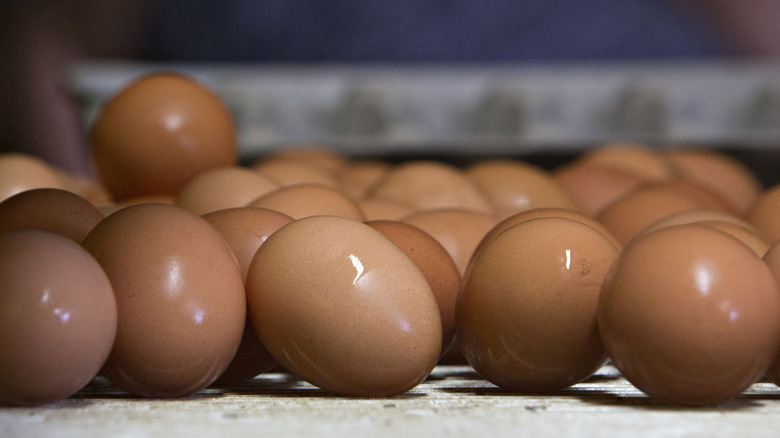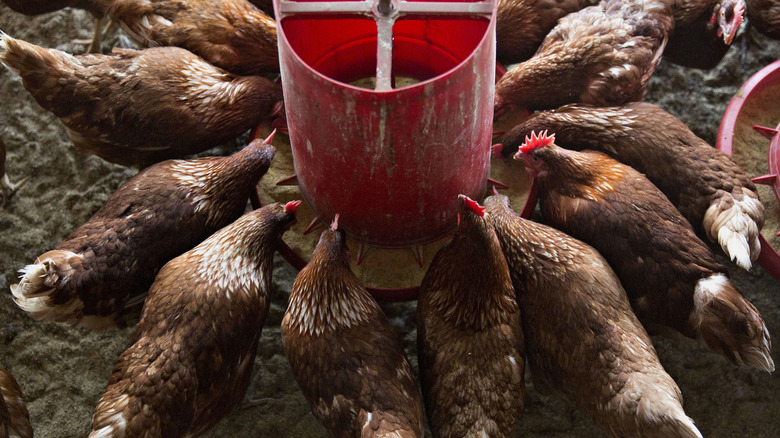The Unexpected Reason Organic Eggs Might Become More Expensive
Grocery prices have been on the move since the pandemic began, with Fortune estimating that we are paying at least 2.6% more for the food we eat at home today than we did before the coronavirus pandemic struck. Investigate Midwest reported the price hikes, which took place between April 2020 and April 2021, affected just about everything from beef and veal to dairy products, cereals, fruits, and vegetables. Yet, there was one notable exemption, as the price of eggs for the same period retreated by nearly 9%. But if you consume organic eggs, your luck could be about to change.
Bloomberg is now predicting a spike in the price of organic eggs thanks to a looming trade spat between the U.S. and India, the latter of which supplies in excess of 40% of the organic soy meal farmers use to feed American hens. Moneycontrol says the disagreement stems from an official complaint filed with the U.S. Department of Commerce and the U.S. International Trade Commission by the organic Soybean Processors of America. The organization charges that Indian soybean meal is reportedly being sold at less than fair market value. In a blow to Indian producers, the Department of Commerce has already seen that subsidies are, in fact, being given to organic soybean producers, prompting fears that tariffs will be imposed on Indian soy imports.
The bilateral trade spat could not have come at a worse time
Soy meal traders are not taking this lying down. Instead, they are hoarding the organic feed, making it even more difficult to find soy meal, which in turn is hurting supplies and causing feed prices to go up. John Brunnquell, who heads up one of the country's largest producers of free-range eggs, tells Bloomberg that the cost of feed is already more than double from what he paid a year ago.
This situation is problematic in and of itself, but it is being made worse by the fact that demand for eggs — both regular and organic — is on an upswing. Rising organic feed prices can also mean more expensive organic meat and organic dairy, which is the last thing American consumers need right now. It doesn't help that the cost of everything else is going up. Brunnquell said his industry was seeing the costs of everything they need increasing, and this includes "packaging, cartons, feed, [and] freight labor."
As with all problems arising from bilateral trade disagreements, there is no easy fix. All we can hope is for the U.S. and Indian governments to come up with a fix — even if it is temporary — that will benefit both sides until other trade problems, which might have been triggered by the global pandemic, are normalized.

